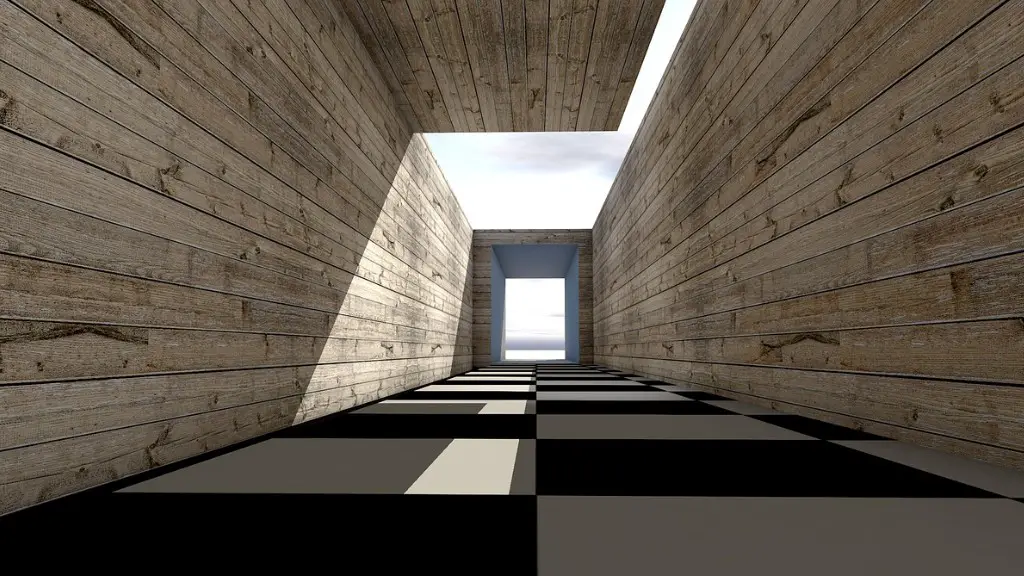Part 1: Understanding the Concept of Architecture School
Architecture school is a special kind of educational institution that is dedicated to teaching architecture. It is a unique combination of the arts and sciences that allows for the creation of unique designs for the built environment. Students will learn the fundamentals of design, construction, material selection and engineering that goes into creating an effective and aesthetically pleasing structure. In order to fully understand the concept of architecture school, it is important to understand that it is not like any other type of school as it requires creative thinking as well as technical skill.
Architecture school also focuses on providing students with a comprehensive knowledge of the various fields within the architectural industry such as urban design, landscape design and civil engineering. Students will also learn about the history and development of architectural styles throughout different eras. Students will also explore the various forms of technology and theory used in the design and construction of buildings.
Architecture school also presents an opportunity to develop personal relationships with peers and mentors. The school typically has a close-knit atmosphere which encourages collaboration and healthy competition. This is a great way to develop social skills, networking and life skills as students are presented with a range of real-world challenges and experiences.
Part 2:Finding a Balance
Surviving architecture school requires a tremendous amount of hard work, dedication and focus. It is important for students to find a balance between work, life and school in order to be successful. It is important to be realistic about your studies and the demands of the course in order to make sure that you can have a successful outcome.
The key to finding a balance is to make sure that you are dedicating enough time to both your studies and your personal life. It is important to make time for family, friends and interests outside of school. This will help to keep you energised and motivated even when things get tough. Additionally, it is important to ensure that you are getting sufficient sleep, eating healthily and exercising regularly as this will help to keep your body and mind in good condition.
It is also important to find ways to make your studying more efficient. Planning and organising your studies can help to make sure that you are able to make the most of what little spare time you may have. Additionally, it is important to find strategies such as breaking large tasks into smaller, more manageable chunks and using planners or to-do lists to help keep track of your tasks.
Part 3: Dealing with Stress
Architecture school can be an incredibly stressful experience. With a high workload, tight deadlines and social pressures to deal with it can be difficult to know how best to cope with the stressors of study. Learning how to better manage stress can be key for achieving a balanced life.
One of the most important things you can do is to make sure you are getting enough rest and taking regular breaks away from the books. Another strategy which can be helpful is to practice mindfulness and to keep a journal. This can help to keep track of your thoughts, feelings and emotions and can assist in providing a clearer perspective of the challenges you may be facing. Additionally, seeking some form of professional help or support can be an invaluable way of dealing with stress and anxiety.
Part 4: Gaining Experience
Gaining professional experience is an important factor for anyone wanting to pursue a career in architecture. Architecture school is the ideal place to start to gain such experience as it provides a range of opportunities for students to apply their knowledge and skills.
Part-time jobs and internships can be great ways to gain some valuable experience. It is also important to take part in extracurricular activities such as design competitions, conferences and industry-led events. This can be a great way to develop your knowledge and skills and build relationships with industry professionals and peers. Additionally, being able to showcase your portfolio and networking can be key to starting a successful career.
Part 5: Developing a Support Network
Having a strong support network is an important part of surviving architecture school. This could include mentors, family, friends, classmates or peers who you can share your thoughts, feelings and experiences with. It is important to make sure that you are surrounded by people who understand and support you. It can help to provide a boost when motivation may be waning or to seek assistance when in need.
Having a support network can also provide incredible learning opportunities. Hearing different perspectives, ideas and approaches can often be invaluable to understanding complex architectural concepts. Additionally, having peers to collaborate with can be helpful to discuss topics such as design solutions or materials selection.
Part 6: Understanding Architecture Theory
Architecture school is not just about the practical aspects of architecture, but it is also important to have a grasp of the ethical and philosophical principles of architecture. Exploring the core elements of architecture such as form, scale, order and materiality is fundamental for gaining a comprehensive understanding of architecture.
Additionally, it is important to understand the historical, contextual and cultural implications of architecture. Such knowledge can provide a great insight into how a building can be designed or why certain theories or styles may have evolved into what they are today.
The history and development of architecture through the ages may also provide some useful design solutions or inspirations to students. Understanding and exploring the evolution of architecture can help to explore potential influences, trends and artistic movements that can be applied to modern designs.
Part 7: Making Connections and Collaborating
Architecture school provides a great opportunity for students to make connections and to collaborate with other students and professionals. Building relationships with your classmates and peers can help to grow your network as you start to transition into the industry.
Additionally, professional collaborations with mentors and other industry professionals can also provide invaluable insight into the industry. Such relationships can also be helpful for gaining advice, feedback or to discuss potential job opportunities.
The ability to collaborate and communicate with others can also be an important factor in successful teamwork. Architecture school can be an ideal time to develop, hone and refine the communication and teamwork skills needed to be successful in the industry.
Part 8: Motivation and Self Care
Motivation and self care are essential components for successfully completing architecture school. It is important to remember why you are studying, who inspired you to pursue architecture and your goals for the future. Keeping a record of these motivations can be beneficial when the going gets tough.
Self-care is also essential to perform at your best. It is important to eat healthily, exercise regularly, capture moments of joy and practice self-compassion. Creating a routine and making sure to create time for joy and relaxation can be key for staying motivated.
There are also plenty of helpful study aides to assist with learning such as podcasts, online resources and applications. Utilising these can be a great way to break up monotonous study such as lecture notes and readings.
Part 9:Keeping Track
It is important to stay on top of assignments, readings and deadlines in order to successfully complete the course. Keeping track of tasks and marking progress will help with motivation and give a sense of accomplishment.
It is important to dedicate some time for readings and lectures as studying for architecture can often be intensive. However, studying in a group can be beneficial as it can provide an opportunity to quiz each other on concepts as well as receiving advice and feedback. Additionally, making good use of study planners and to-do lists can also help to structure your studies and to provide a clear overview of tasks.
Finally, breaking up large tasks into smaller manageable chunks can be a way to make studying more efficient. This can be done by breaking tasks down into sections and setting achievable goals. Setting mini-deadlines and rewards can be helpful for staying motivated.
Part 10: Utilising All Resources
Architecture school provides a range of resources to help support students throughout their studies. It is important to familiarise yourself with the range of resources that are available such as lecture notes, past exams and the library. Additionally, taking advantage of the resources provided by tutors is an invaluable way to receive advice and feedback.
Utilising the career centre or professional societies can be a great way to find internships or to build professional relationships with industry professionals. Additionally, it can be advantageous to join in some of the extracurricular activities available at the university such as design competitions, industry talks or press releases.
Taking advantage of the mentorships, workshops and events available can be a great way to develop work experience, skills and make connections. Additionally, networking with industry professionals can be a great way to gain insight into the industry, look for job opportunities and to have your portfolio reviewed.


